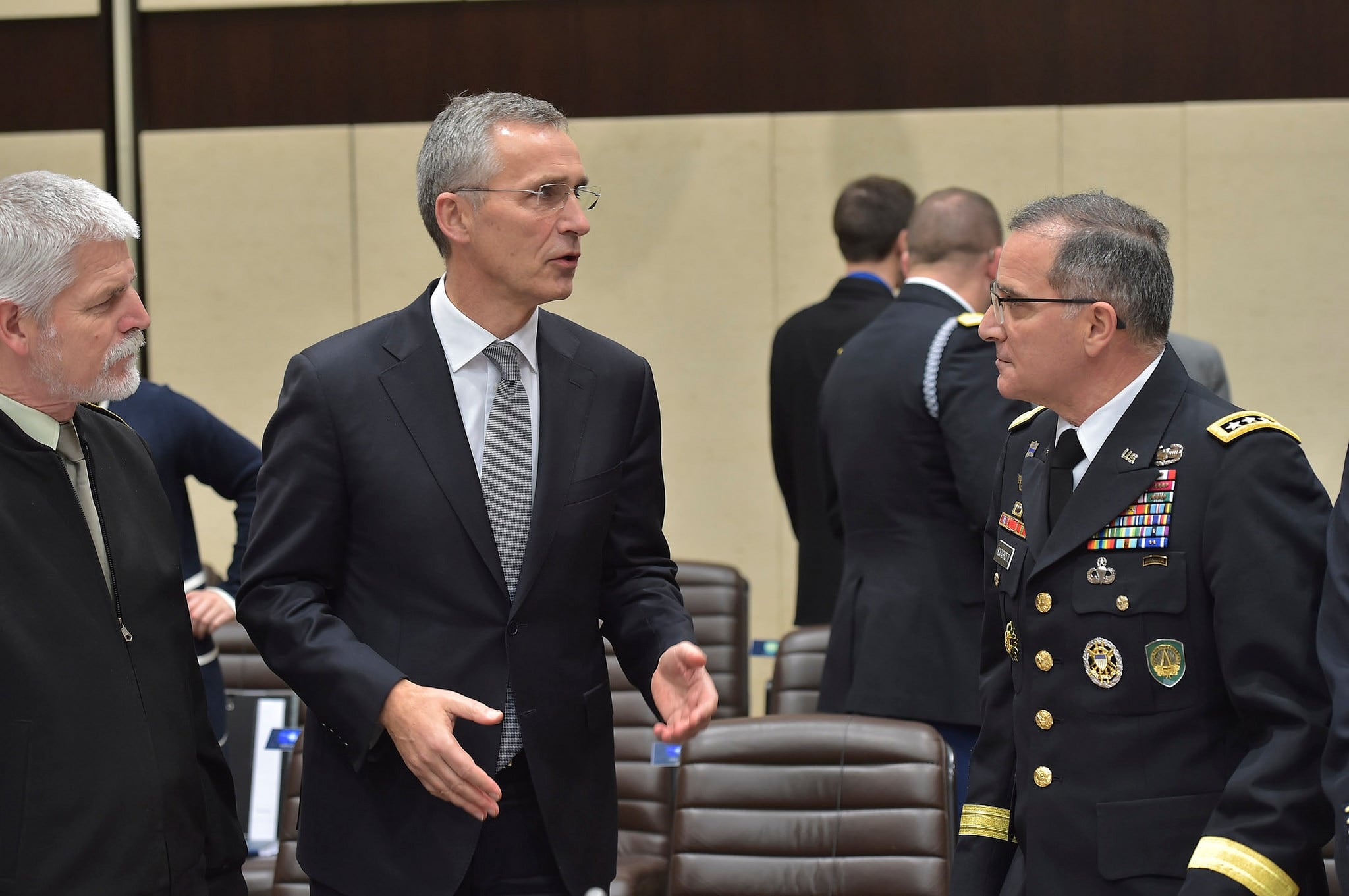BRUSSELS — NATO's top military officer said Wednesday that about 150 Turkish officers have been recalled or retired from the alliance's high command since a failed coup attempt in Turkey, placing a significant burden on his staff.
U.S. Army General Curtis Scaparrotti said losing so many seasoned officers had placed "an extra load on our remaining people" and that "it obviously has an impact on their military."
"I had talented, capable people here, and I'm taking a degradation on my staff," he said.
In rare public comments about the July coup attempt's impact at NATO, Scaparrotti also expressed concern about the welfare of the departed officers and their families. He said the chief of Turkey's army had assured him they would be treated well.
Turkey, a NATO ally, has launched a large-scale crackdown on followers and institutions it thinks are linked to U.S.-based Muslim cleric Fethullah Gulen, accused by Ankara of masterminding the failed July 15 plot to topple the government.
Authorities have arrested close to 38,000 people and purged more than 100,000 others from government jobs, including the military. Gulen has denied orchestrating the coup.
The officers who were recalled or retired from NATO make up about half of Turkey's roughly 300-strong officer contingent at the alliance's high command in Belgium, Italy and the Netherlands.
Scaparrotti said that about 75 of them have been replaced so far.

Left to right: Gen. Petr Pavel, chairman of the NATO Military Committee; NATO Secretary General Jens Stoltenberg; and U.S. Army Gen. Curtis Scaparrotti, Supreme Allied Commander Europe.
Photo Credit: NATO
One big problem, Scaparrotti said, is that many who left were senior officers. Replacing their expertise as military trainers or top pilots will take a long time, he said.
Scaparrotti said he speaks regularly with Turkey's Gen. Hulusi Akar, who briefly was taken hostage during the foiled coup, and has conveyed his concerns about the officers departed .
"I talked to him about my concern about the care for them and their families as well. That's a concern for those officers who, you know, in some cases really don't understand what their future is at this point," Scaparrotti told reporters on the sidelines of NATO talks in Brussels.
He said he had no suspicion that any of the Turkish officers might have been involved in a coup plot.
The general's cautious and measured comments provided a rare glimpse at how the coup attempt and the government's post-coup crackdown have affected the world's biggest military alliance.
Turkey has one of NATO's largest armies and as a strategic bridge to the Middle East and Black Sea region, few partners are willing to criticize it.
Officers and diplomats privately concede that the crackdown simply isn't mentioned publicly. NATO also does not have procedures for monitoring a member's potentially ailing army.
In recent days, NATO Secretary General Jens Stoltenberg acknowledged that some Turkish officers working at the alliance had applied for asylum in Europe, but he declined to go into details or provide numbers.
A number are known to have done so in Belgium, while a small group of officers and their families — around 35 people in total — have also done so in Germany.
Beyond dealing with the coup fallout, Ankara is combating Islamic State extremists and Kurdish separatists in its southeast.
The country has also faced pressure from European Union countries for the arrival in Turkey of almost 3 million Syrian refugees from Syria, many of whom have tried to reach Europe.




